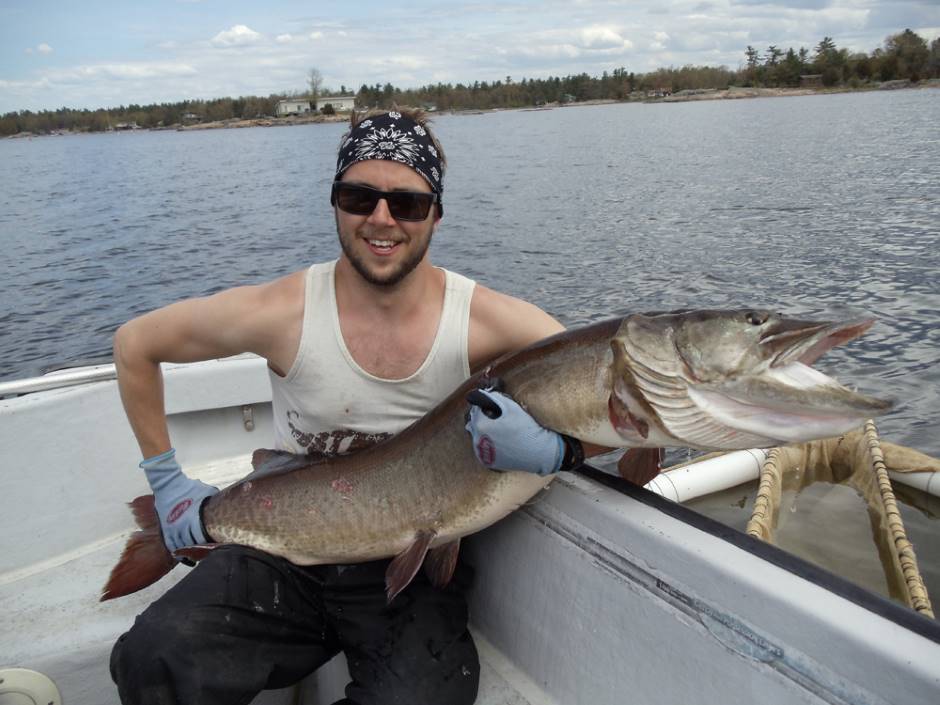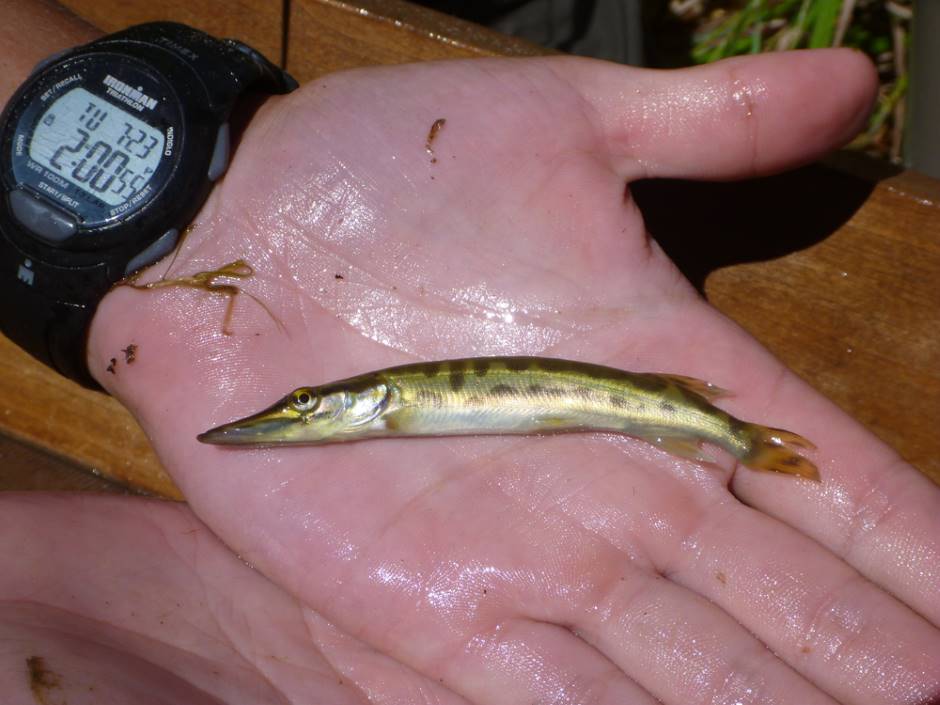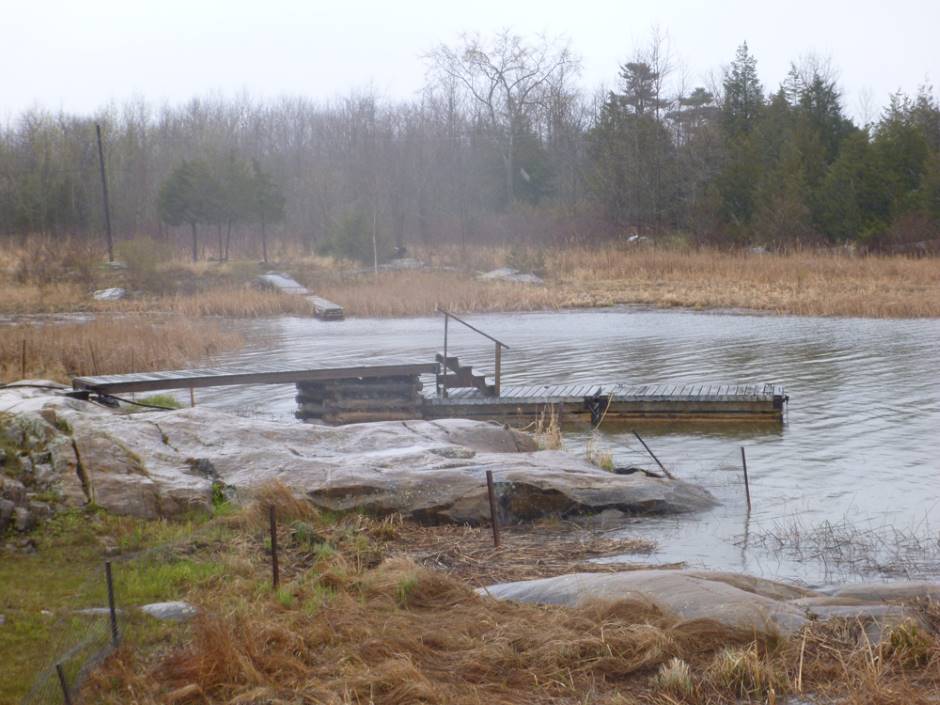Impacts of Habitat Loss in the Georgian Bay Muskie Fishery
 Study co-author Dan Weller holding a Severn spawning muskie that was implanted with a radio-transmitter (Credit: John Paul Leblanc)
Study co-author Dan Weller holding a Severn spawning muskie that was implanted with a radio-transmitter (Credit: John Paul Leblanc)The Georgian Bay is infamous for its muskie fishery, and while anglers still flock to the bay each year, the bay is not safe from environmental stressors and system decline. In fact, long-term monitoring efforts in the bay have revealed that the bay is undergoing changes that will shape the fishery in the future.
How the Georgian Bay Has Changed
According to the Georgian Bay Land Trust, the bay has historically been a hospitable environment for muskies. However, in 1999, water levels dropped below the long-term mean and while there were widespread expectations that things would return to normal the following year. After 14 low years, levels rose again, and the bay area has continued to be monitored.
Even with close monitoring, the region is still under the threat of human impacts, invasive species and climate change. Despite the significance of the aquatic system, human development and land use continue to put a strain on the environment. Fortunately, even with the threats and history of water level losses, the fishery continues to thrive.
According to John Paul Leblanc, doctoral candidate in biology at McMaster University in Ontario and author of a 2014 study. “It still has a trophy muskie fishery,” he said.
Still, while the fishery has continued to produce record-sized muskie, shoreline development has led to the destruction of several coastal marshes in South Eastern Georgian Bay. In 1981, the Ontario Ministry of Natural Resources documented 16 nursery sites in the Severn Sound area that supported young-of-the-year muskies. When Leblanc and his colleagues returned to those sites in 2012 and 2013, they found absolutely none remaining.
Native aquatic vegetation in the bay’s wetlands supports a muskie nursery hatchery as well as young muskie populations. The deterioration of the marsh habitat threatens the long-term security of the population as muskies attempt to spawn in the same waters each year. Ecosystem changes and habitat loss impact spawning behavior and create an unstable setting for fry to grow.
One of the primary contributors to vegetation losses was the influence of the lower water levels that occurred between 1999 and 1913. An earlier study by Patricia Chow-Fraser, a professor of life sciences at McMaster who also supervised Leblanc’s study, estimated that fish have lost access to 25 percent of the coastal wetland habitat in eastern Georgian Bay that was available at the historically high water level.
How to Protect the Georgian Bay and its Fishery
While the bay’s ecosystem slowly degrades, development has continued, according to Leblanc. Such endeavors have been strongly linked to declining muskie reproduction, even with the well-established species following expected spawning behaviors.
Telemetry studies in the bay show that Georgian Bay muskies are loyal to their spawning grounds, and many return to the same wetlands year after year. The problem with this behavior is when their spawning grounds have disappeared due to water level changes or other factors that contribute to habitat loss. Young muskies also rely on these marshes in their early life and are tied to the survivability of the fry.
“When these sites were first identified in 1981 by the Ontario Ministry of Natural Resources, the guys that wrote up the first paper emphasized that these locations should be protected from human development,” Leblanc said. “Based on our reassessment, this didn’t happen. The protective measures just aren’t in place.”
While muskies have been monitored to some degree, there is a large knowledge gap surrounding adult muskies in the bay. The Georgian Bay Land Trust cites recent research that “uncovered an alarming lack of young-of-the-year muskellunge fry in traditional Georgian Bay wetland nurseries.” They also highlight that the species’ population has been influenced by harvest, habitat degradation and invasive species introductions, causing declines in many areas.
While muskie populations in the bay aren’t in grave decline, allowing harmful practices to continue is a slippery slope that could result in significant losses. Fortunately, muskies aren’t considered to be endangered in the bay, and there is time to change practices before the population declines drastically. Land-use changes now could spare future intervention.




0 comments